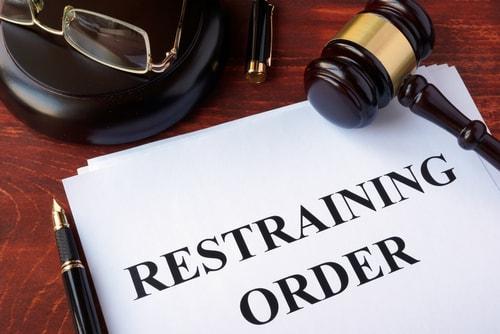Violation of Protective Orders
 Domestic violence is a pervasive, unending problem in the United States, and in Illinois, victims of all genders have been feeling the proverbial pinch. Due to Illinois budget woes during the past few years, funding for shelters and crisis centers has dipped, leading to fewer victims being given shelter or assisted in other ways. Some have sought to get around this by filing Orders of Protection (OPs) against their alleged abusers themselves, but without legal help, that order may be flawed, or it may simply be ignored. It is imperative for victims to know that they are not powerless, and that there is recourse.
Domestic violence is a pervasive, unending problem in the United States, and in Illinois, victims of all genders have been feeling the proverbial pinch. Due to Illinois budget woes during the past few years, funding for shelters and crisis centers has dipped, leading to fewer victims being given shelter or assisted in other ways. Some have sought to get around this by filing Orders of Protection (OPs) against their alleged abusers themselves, but without legal help, that order may be flawed, or it may simply be ignored. It is imperative for victims to know that they are not powerless, and that there is recourse.
Misconceptions About OPs
Pop culture and anecdotal evidence tries to paint Orders of Protection as largely useless, and it is generally true that an OP will not stop a truly determined abuser. However, it will deter many, and for those it does not, the penalties for violation can add up and generate or contribute to a significant prison sentence in the end. Most violations of OPs are Class A misdemeanors, but violating an order of protection against a child, or against removal or concealment of a child, is a Class 4 felony.
Another common misconception is that OPs must be continually renewed, as they will only be granted for weeks at a time. In Illinois, at least, this is untrue - OPs are usually plenary, meaning that they cover any and all matters touching on a certain topic, which means that they fall into the class of orders that are valid for up to two years. Most OPs are also wide-ranging (simply because they can be), covering any contact in any form, from in-person interaction to telephone calls and voicemails to email and the like.
Violation Aftermath
Perhaps the single most problematic issue when trying to charge someone with a violation of a protective order is trying to prove they had knowledge of it. While most of the time, if a defendant has not been served with a copy of the order, they can claim they had no knowledge, Illinois law does permit the prosecution to argue that the defendant should have had knowledge, or to prove the defendant did in fact know of it, and thus can be found guilty of violating the order - the law requires that the violation be “knowing.”
Conversely, OPs are sometimes abused by those seeking them to place defendants in untenable positions, especially if they have children in common with the plaintiff. It is not uncommon for a defendant to be arrested for violating an OP for doing something like picking up their children, or taking their own personal property out of the marital home. The aftermath of such a violation can be extremely negative for the defendant, not least of all because an OP remains on one’s criminal record unless the prosecution is dismissed (which makes the order a candidate for expungement).
Call A DuPage County Domestic Violence Attorney
Domestic violence is a matter that the state of Illinois takes very seriously, and thus accusations should not be made lightly. If you are in need of an Order of Protection, or you have questions about one filed against you, the DuPage County domestic violence attorneys at Kathryn L. Harry & Associates, P.C. may be able to assist us. Contact our office today to set up an appointment.
Sources:
http://www.ilcadv.org/resources/statistics/FY17DataSheet.pdf
http://ilga.gov/legislation/ilcs/ilcs5.asp?ActID=2100&ChapterID=59
 1200 Harger Road, Suite 830, Oak Brook, IL 60523
1200 Harger Road, Suite 830, Oak Brook, IL 60523







